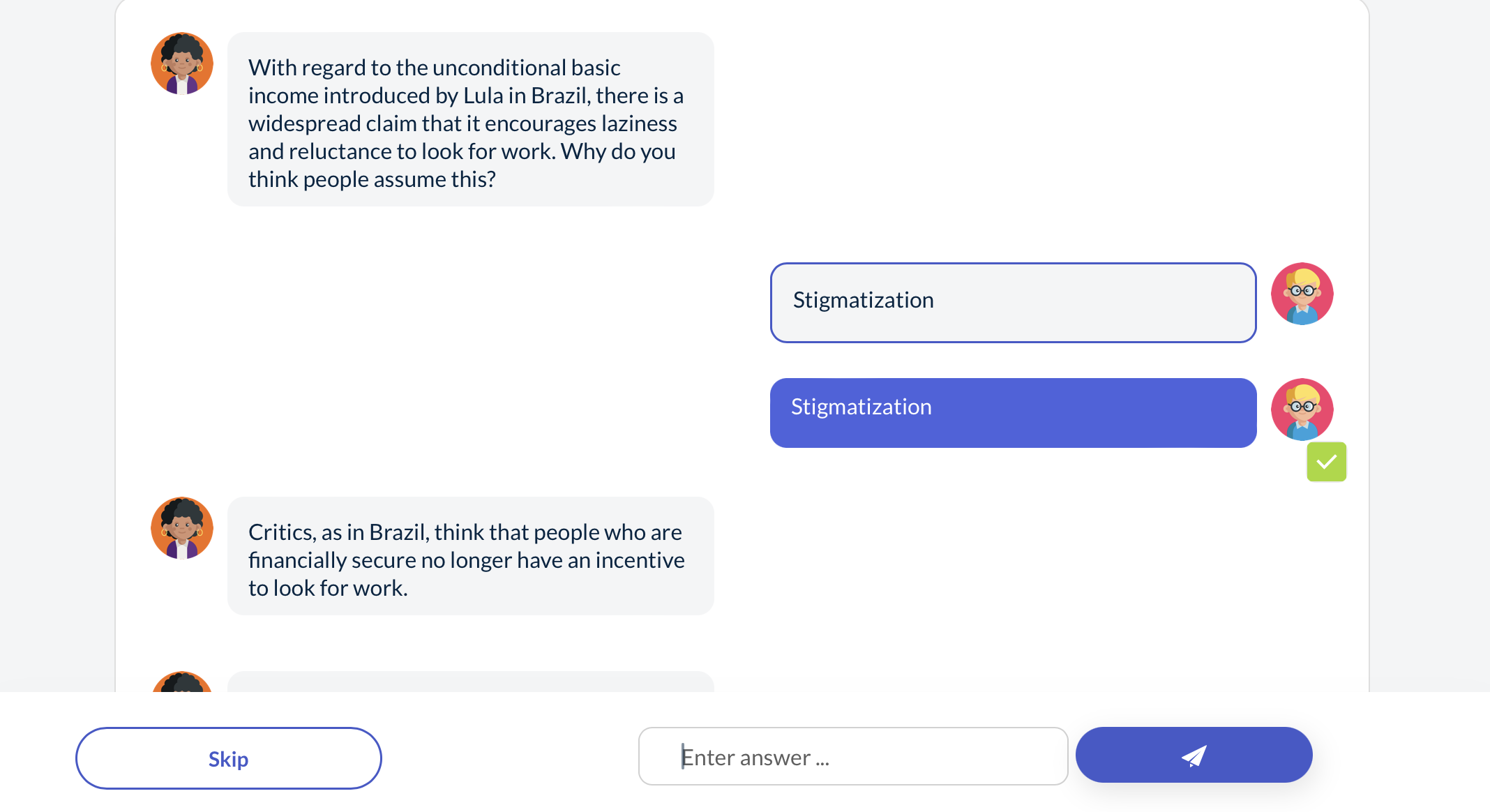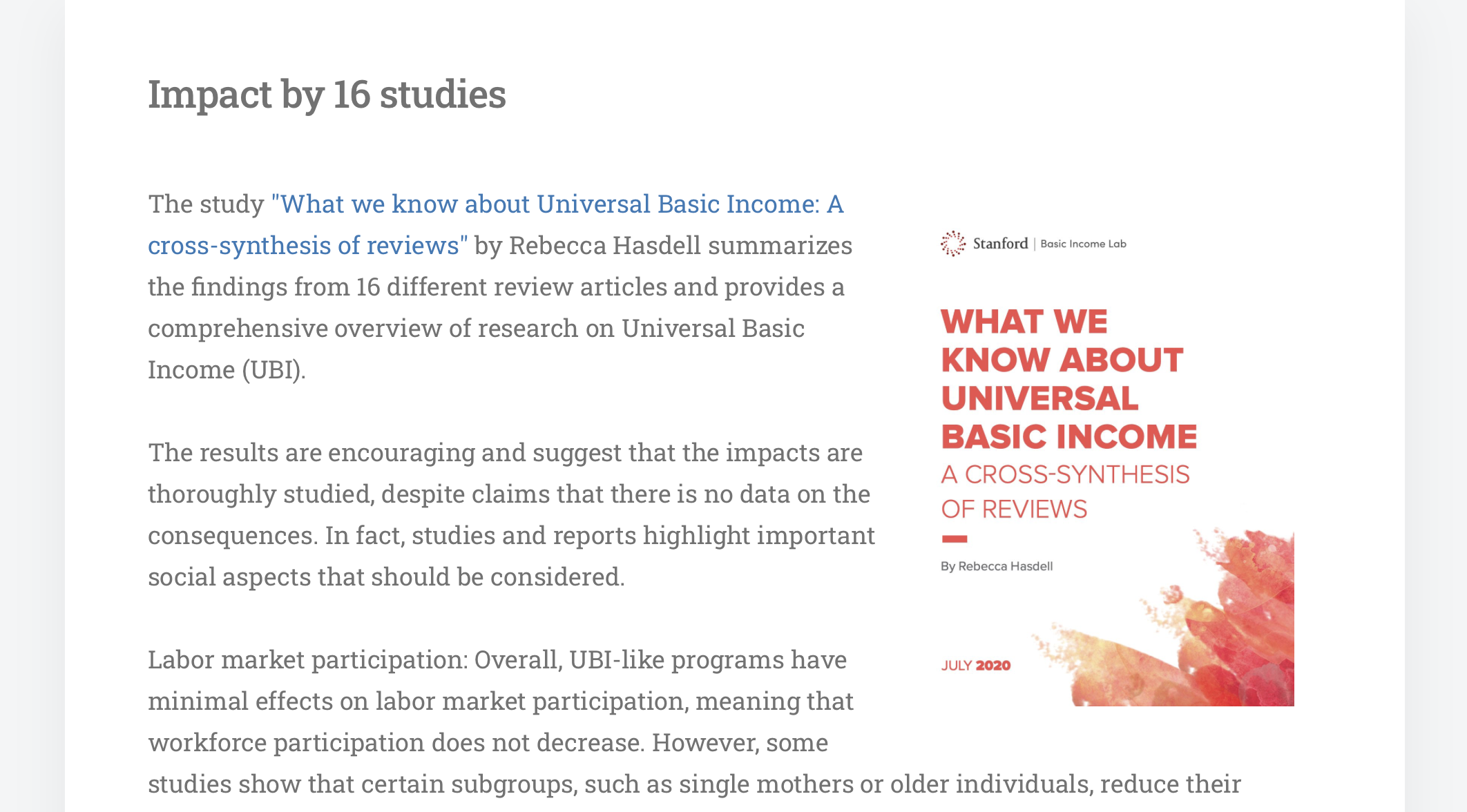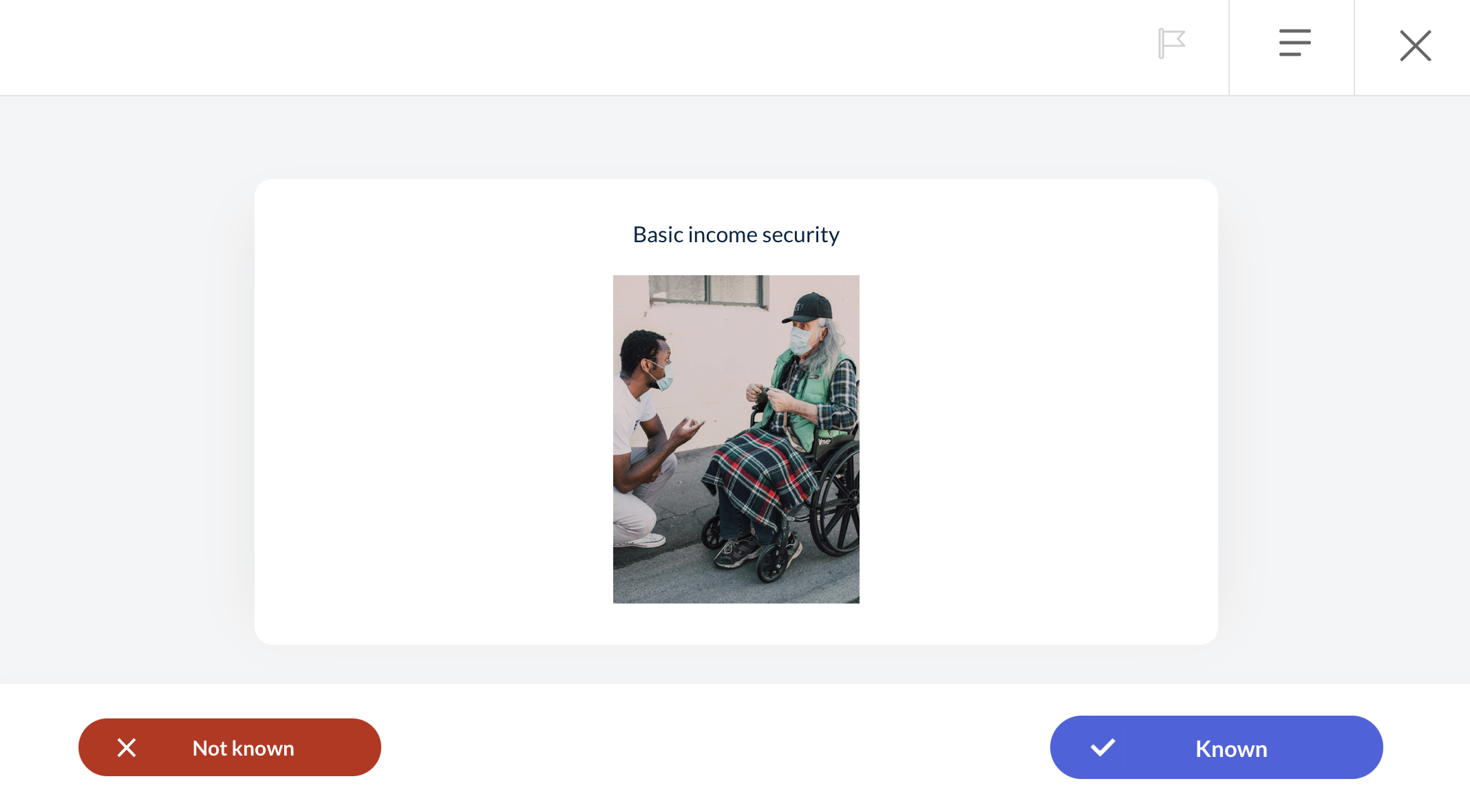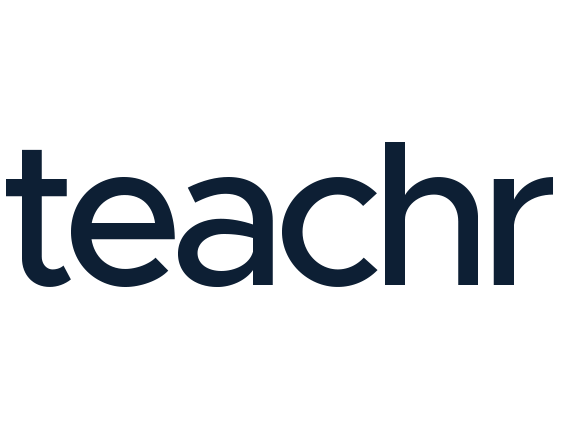
The Universal Basic Income: Insights from “The Philosophers” Course on teachr
Universal Basic Income (UBI) is a financial program where the government provides all citizens with a regular, unconditional sum of money to cover basic living expenses. The aim is to ensure economic security, reduce poverty, and promote equality.

In most debates, Universal Basic Income (UBI) often gets an undeservedly poor reputation, largely due to prevalent myths such as the assumption that people would become lazy and stop working.
Contrary to these assumptions, numerous studies from countries such as Finland, Kenya and Brazil show that the Universal Basic Income leads to increased work motivation without significantly reducing working hours. But not only that. The experiments also shown that UBI recipients are even more likely to pursue higher educational opportunities and self-employment, have a lower crime rate, are happier overall, have a lower addiction rate and have a stronger sense of community and trust in government. In the long term, these benefits have a positive impact on entire economies while reducing bureaucracy.
“The Philosophers” on teachr have invested countless hours into developing this course, while also using teachr’s advanced AI tools to create content that is both informative and engaging, scientifically backed by studies. This dedication can be seen in the detailed research into UBI, in the debunking of common misconceptions such as those mentioned above and in the presentation of scientifically sound facts and studies.

Debunking Common Myths
One of the significant contributions of this course is its effort to dispel prevalent myths surrounding UBI. A common misconception is that UBI would make people lazy and disincentivize work. However, “The Philosophers” present evidence from various UBI experiments worldwide, showing the opposite effect. Studies from Finland, Kenya, and Brazil indicate that UBI can actually lead to higher work motivation and increased engagement in higher education and self-employment. These findings challenge the stereotype of laziness, highlighting instead the potential for personal and professional development.
Positive Social and Economic Impacts
The course also explores the broader social and economic impacts of UBI. Data from multiple studies show that UBI can contribute to reduced crime rates, lower addiction rates, and improved social cohesion. People receiving a basic income report higher levels of satisfaction and a stronger sense of community. These benefits can have long-term positive effects on entire economies, fostering a more inclusive and supportive society.

Analyzing Potential Effects on Labor and Employment
A critical area of focus is the potential effects of UBI on the labor market and employment. Contrary to the fear that UBI might reduce workforce participation, the course highlights evidence suggesting that it can enhance job satisfaction and create opportunities for more meaningful work. Individuals are more likely to pursue further education and entrepreneurial ventures, contributing to a dynamic and adaptable labor market.

Addressing Social Security and Poverty Reduction
The potential of UBI to address social security and poverty is another key aspect covered in the course. By providing a financial safety net, UBI can help reduce poverty and income inequality. It simplifies the welfare system, potentially reducing bureaucracy and increasing the efficiency of social security programs. This could lead to a more equitable distribution of resources and a reduction in poverty-related issues.
Exploring Financing Options and Economic Feasibility
The course doesn’t shy away from the complex question of financing UBI. Various financing options and their economic feasibility are thoroughly analyzed, offering learners a realistic understanding of the challenges and possibilities. This balanced approach ensures that participants are well-equipped to engage in informed discussions about the practicality of implementing UBI.

Engaging with the Debate
By offering a blend of theoretical knowledge and empirical evidence, the course on UBI by “The Philosophers” empowers participants to engage in the UBI debate competently. Whether you are a student, policymaker, or an interested citizen, this course provides valuable insights that can help you understand the potential of UBI as a transformative policy.
The course stands out as a well-researched, balanced, and insightful resource. It debunks myths, presents factual evidence, and explores the multifaceted impacts of UBI on society and the economy. Here you can gain a comprehensive understanding of the UBI and make a meaningful contribution to the ongoing discussions about its future.
This course is free and available without registration. However you are free to create create an teachr account to save your progress. We are sure that after this course you will not wonder if we should integrate a UBI, but how!




